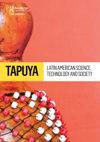被压迫者的技术:巴西贫民窟的不平等与数字世俗
IF 1.2
Q2 HISTORY & PHILOSOPHY OF SCIENCE
Tapuya: Latin American Science, Technology and Society
Pub Date : 2023-11-28
DOI:10.1080/25729861.2023.2276992
引用次数: 0
摘要
大卫-内梅尔(David Nemer)开展了一项人种学研究,分析贫民窟居民如何利用日常技术(不仅是人工制品,还有空间和程序)来减轻日常生活中的压迫。Nemer 运用了 "世俗技术"(Mundane Technologies)这一概念,其中包括日常的、非生产性的活动和人们的愿望。在这些技术的使用过程中,包含了人们如何发挥自己的能动性和意识,动员起来提高生活质量的过程,即他们如何批判性地、有意识地重塑技术的过程。作者认为,这构成了寻求解放的希望之举。本书以弗莱雷理论为基础,内梅尔提出了保罗-弗莱雷的几个概念来支持他的论点,如压迫的概念、本文章由计算机程序翻译,如有差异,请以英文原文为准。
Technology of the oppressed: inequity and the digital mundane in favelas of Brazil
David Nemer conducts an ethnographic study to analyze how favela residents appropriate everyday technologies, not only artifacts but spaces and processes, in order to alleviate oppressions in daily life. Nemer applies the concept of Mundane Technologies, which encompasses everyday, non-productive activities and desires that engage people. Embedded in the appropriation of these technologies are the processes of how people exercise their agency and consciousness, to mobilize towards a better quality of life, i.e. how they critically and consciously reinvent technology. According to the author, this constitutes acts of hope in the search for liberation. The book is grounded in Freirean theory, and Nemer brings several concepts of Paulo Freire to support his argument, such as the notion of oppression,
求助全文
通过发布文献求助,成功后即可免费获取论文全文。
去求助
来源期刊

Tapuya: Latin American Science, Technology and Society
Social Sciences-Social Sciences (all)
CiteScore
1.60
自引率
0.00%
发文量
39
审稿时长
19 weeks
 求助内容:
求助内容: 应助结果提醒方式:
应助结果提醒方式:


